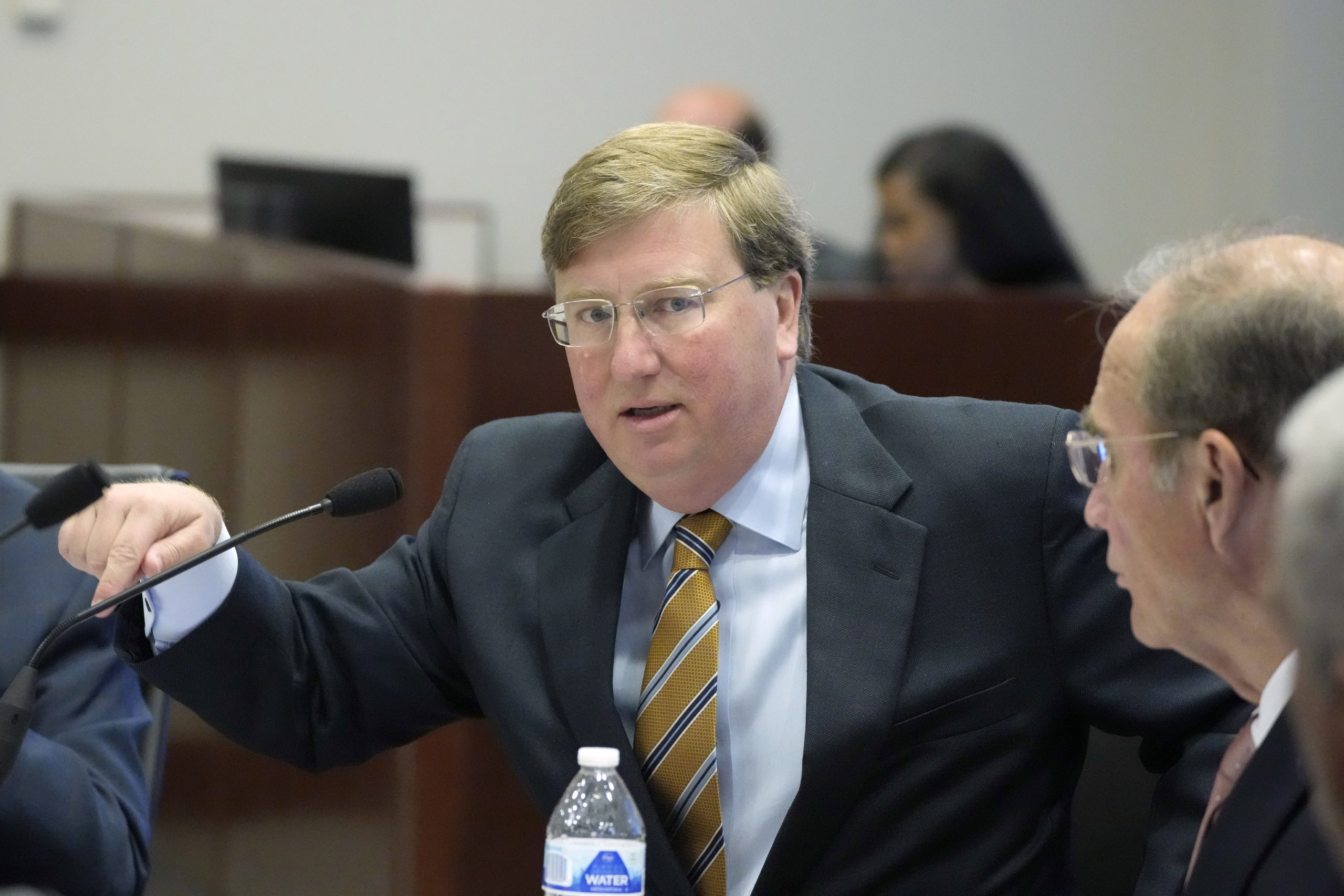[ad_1]
Ronnie Musgrove, Mississippi’s last Democratic governor, and incumbent Gov. Tate Reeves, a proud Republican, have something in common — perhaps to the chagrin of both.
They could not agree at point in their tenure with legislative leaders on the amount of money the state would have to budget for the upcoming fiscal year.
When Reeves refused to accept the revenue estimate offered earlier this month by members of the Joint Legislative Budget Committee for the amount of money that would be collected to fund state vital services, he said it was “unchartered territory” for Mississippi government.
Perhaps Reeves, who in 2002 was 28 years old and preparing to run for his first statewide office, does not remember, but then-Gov. Musgrove also refused to agree with legislative leaders on the amount of money that would be available to budget.
State law mandates the governor and legislative budget committee, including the speaker and the lieutenant governor, meet each fall and agree on a revenue estimate. That estimate reflects the amount of money lawmakers can use as a starting point during the next session — beginning in early January — to budget for the upcoming fiscal year that begins July 1.
In 2002, Musgrove and the budget committee — led at the time by Speaker Tim Ford and Lt. Gov. Amy Tuck — could not agree on a revenue estimate.
“I thought the revenue estimate being offered by the committee was unrealistic,” Musgrove said recently during a phone interview from his Oxford home. He let out a hearty chuckle after being told he had something in common with Reeves.
In terms of his unwillingness to agree with the budget committee on the revenue estimate, he chuckled again and added, “As a side note, I was right.”
While Musgrove and Reeves hold the rare distinction of not agreeing with the legislative leadership on the revenue estimate, there is at least one key difference in their disagreements.
In 2002, the budget committee, as is the custom, was ready to accept the recommendation of the five state financial experts about the amount of money the state would collect over those next 12 months.
Musgrove, who was having to enact mid-year budget cuts because revenue was not meeting projections for the current year during a national recession, said he believed the estimate should be lower. He didn’t want to be left with having to make mid-year cuts after the Legislature had adjourned for the year in the middle of his reelection campaign.
By contrast, Reeves was ready to accept the experts’ recommendation. But it was the current budget committee, led by Lt. Gov. Delbert Hosemann, who said the recommendation of the experts was too high. The committee wanted to and did adopt an estimate $117.8 million less than the $7.64 billion estimate recommended by the experts.
Time will tell who is right this time.
But what is clear is that while Musgrove was refusing to agree, hoping to avoid mid-year cuts, Reeves is refusing to agree for the sake of his tax cut proposal. Reeves wants the perception — and maybe reality of a rosy financial outlook — as he conducts an all-out push in the 2024 session to eliminate the state income tax, which brings in roughly one-third of Mississippi’s annual general fund revenue.
Despite the jockeying done by Musgrove in the fall of 2002 and by Reeves in the fall of 2023, in reality, legislators have the final word.
The five financial experts — the treasurer, a member of the Legislative Budget Committee staff, state economist, state fiscal officer and commissioner of revenue — offer a consensus recommendation to the governor and the budget committee on the revenue estimate in the fall. But before adopting a final budget, the budget committee can meet late in the spring without the governor and hear an updated estimate from the experts and revise the estimate. That revised estimate is typically what legislators use in budgeting for the upcoming fiscal year.
The only recourse the governor has at that point is his veto.
Earlier in his tenure, Musgrove vetoed dozens of budget bills. Legislators overrode those vetoes with hardly a blink of their collective eye.
But in the 2003 session, after the legislative leaders refused to adopt Musgrove’s revenue estimate, he vetoed one key budget bill. This time the membership of the Legislature did uphold that veto and passed a revised bill that provided more safeguards to prevent Musgrove from having to make mid-year cuts. So, while legislative leaders refused to listen to Musgrove about the revenue estimate in the fall, a majority of the Legislature did heed his warnings in the spring before passing a final budget.
How the disagreement between Reeves and the legislative leadership will impact his tax cut proposal during the 2024 session remains to be seen.
[ad_2]
Source link

